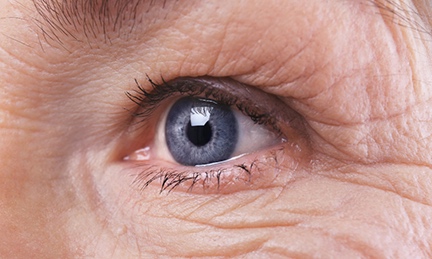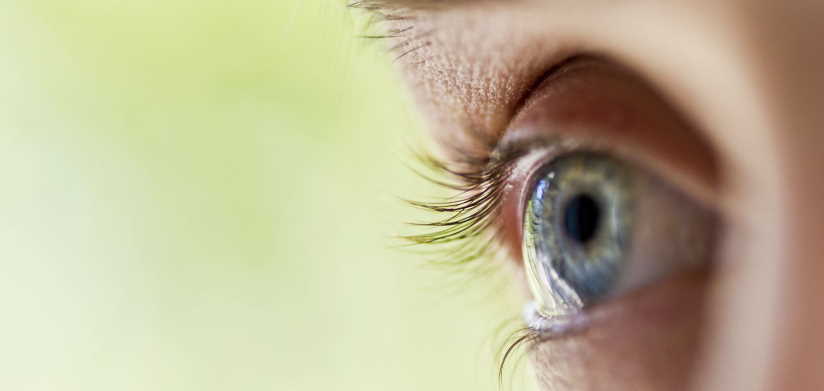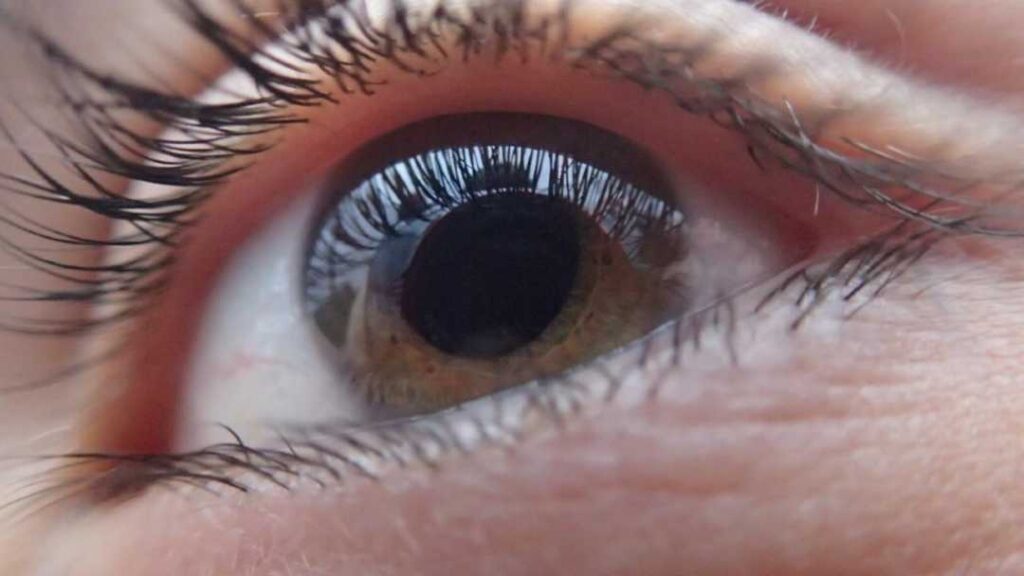The eye is a delicate organ, and there are many things that can affect its health. Cataracts are one of the most common issues that affect eyesight, but they’re usually easy to treat.
In some cases, cataract surgery may make it difficult for you to wear makeup. There are several factors that can affect your ability to put on makeup after cataract surgery, including the type of procedure performed and how much time has passed since surgery. Here’s what you need to know about putting on make-up after cataract surgery:
Your doctor will advise you on when you can start wearing makeup again. If you have had a posterior capsulotomy or other types of invasive surgeries on your eye, it’s possible that your doctor will recommend waiting until your eyes have healed completely before applying any products near them.
You should also avoid using mascara or eyeliner on top of your eyelids if you’ve had cataract surgery in the past year or so. This is because the skin around your eyes is still healing after the procedure and may be sensitive to certain products like mascara.
If your vision problems were caused by an accident or other trauma rather than age-related damage, then it might not be necessary
Once your cataracts are removed, you may have some difficulty in applying makeup. This is because your new lens may have been placed behind the iris, which can cause glare and halos around lights. In addition, the pupil size may be different from one eye to another so that you have limited depth perception.
Here are some tips to help with cosmetics after cataract surgery:
1) Consider not wearing makeup for a few weeks after surgery. The eye is healing and any irritation could slow that process down or possibly make it worse.
2) Consider using a magnifying mirror while applying makeup until your vision stabilizes. This will allow you to see better and avoid errors in application that might lead to further complications such as infections or corneal abrasions (scratches on the cornea).
3) Ask your ophthalmologist about proper use of contact lenses so that you can wear them if desired after cataract surgery. Contact lenses can reduce glare by blocking light reflections from the cornea and they can also improve distance vision by acting like sunglasses for the eyes. If you wear contacts after cataract surgery, be sure to follow proper cleaning instructions as prescribed by your doctor so that
Cataract surgery is a common procedure in which a surgeon removes the clouded lens of the eye and replaces it with an artificial lens.
The procedure has a high success rate, but there are some side effects that can occur. One of these side effects is dry eyes. The cornea and conjunctiva (the thin layer of tissue covering the sclera) become dry after surgery because they have to work harder to keep tears flowing. Dry eyes may occur during your recovery period and sometimes continue for several months after surgery.
It’s important to keep your eyes lubricated with artificial tears while recovering from cataract surgery, but you should wait at least one week after surgery before using makeup.
Here’s what you need to know about makeup after cataract surgery:
You can use cosmetics as soon as you feel ready. It’s best to wait until all bandages are removed from your incision sites before putting on makeup or contact lenses, however, so that healing process doesn’t get interrupted by any irritation from cosmetics or eyelashes getting stuck in adhesive residue left behind by bandages.
Why can’t you wear makeup after cataract surgery?
After cataract surgery, you may be concerned about your appearance. You may feel self-conscious about your eyes and the way they look without glasses or contact lenses. The good news is that you can start wearing makeup as soon as you want.
Before surgery
You may want to consider wearing makeup before surgery if your eyes are very dark or sensitive to light. If so, talk with your eye doctor about what types of makeup will work best during this time period.
After surgery
Your eye doctor will provide instructions on how to apply makeup after cataract surgery. He or she may recommend using a concealer to cover any bruising or redness around the eye area caused by the procedure. You should also avoid putting mascara on the lashes close to the incision site as it could cause infection and delay healing time.
Cataract surgery is a procedure that removes the cloudy lens of the eye and replaces it with an artificial lens. The surgical procedure to remove the natural lens and replace it with an artificial lens is called cataract surgery.
The cataract surgery is performed under local anesthesia, so you will not feel any pain during the procedure. You may experience some mild discomfort immediately after surgery while you are still at the clinic or hospital.
The surgeon will use a small incision in your cornea to remove the clouded lens and insert an artificial lens into your eye. This artificial lens can be made of plastic or glass and is often made from donated human tissue. Your doctor will determine which type of material will work best for you based on several factors such as your age, lifestyle, medical history, and overall health status.
After cataract surgery, your vision may be blurry for a few days or weeks until healing occurs. Most patients see well enough to do their normal daily activities within two weeks after surgery; however, some people may need glasses after cataract removal if they still have a residual astigmatism (an abnormal curvature of the cornea).
How do you remove eye makeup after cataract surgery?

There is no need to remove eye makeup before cataract surgery.
Eye makeup may be removed after surgery with a mild soap and water.
I do not recommend using makeup remover pads as they can cause irritation and burn the cornea.
Eye makeup is tricky to remove after cataract surgery.
The skin around the eyes is very delicate and sensitive. It’s often recommended that you use non-oily makeup removers, soaps and cleansers on this area of the body.
If you wear eye makeup, the best thing to do is to remove it before you go to bed. It’s also a good idea to remove your makeup before going swimming or taking a shower, since water can make it run and smear around your face.
Once your skin has healed from surgery, you should be able to use most types of soap and cleansers without irritation or discomfort. However, if there are any problems with your new prescription lenses after surgery, avoid using any kind of soap or cleanser until it’s safe for you to do so
How do you remove eye makeup after cataract surgery?
Eye makeup can be irritating to the eye after cataract surgery. You should avoid wearing eye makeup while your eye is healing. You may resume wearing your normal makeup once you are confident that your eyes are healed. This can take several weeks or months.
You should not wear mascara or eyeliner around your eyes for at least two weeks after cataract surgery to prevent infection and irritation.
To remove eye makeup, wash your hands well with soap and warm water before touching your eyes. Gently wipe off the eyeliner and mascara from the upper lid using a cotton ball soaked in warm water or saline solution (saltwater). Do not rub too hard or scratch your eyelids as this could cause severe irritation and damage to the cornea (the clear part of the front of your eyeball).
Do not use oil-based makeups as they may clog pores and lead to infections.
There are several ways to remove eye makeup after cataract surgery.
The most common way is to use an oil-free eye makeup remover that does not contain harsh chemicals. You can also use a gentle cleanser or baby shampoo for removing eye makeup. If you have sensitive skin, you may find that baby wipes are the easiest way to remove your eye makeup.
After your surgery, it will be important to avoid using any products near your eyes that contain alcohol. Alcohol will dry out your eyes and cause irritation, which can make it difficult for you to heal properly.
Can I use eyebrow pencil after cataract surgery?
Eyebrow pencils have been used by artists and makeup artists for years, but they can also be an effective tool in the hands of someone who is just trying to fill in their eyebrows. The primary purpose of brow pencils is to help you shape your eyebrows into the desired shape. However, some people may also want to use them as a way to color their eyebrows as well.
Eyebrow pencils are typically made from waxes and oils that are used to keep the color from smudging and fading throughout the day. This means that it’s possible for you to use eyebrow pencils after cataract surgery. If you have any questions about whether or not it’s safe for you to use this type of product, talk with your doctor or optometrist before proceeding with any treatment plan that involves eyebrow pencils.
Yes, you can use eyebrow pencil after cataract surgery.
Eyebrow pencils are great for filling in sparse eyebrows. Be careful not to use anything that is too dark or looks unnatural. It’s best to use light strokes and gradually build up the color with each application.
The best time to apply eyebrow pencil is right after washing your face in the morning and before applying any other makeup. If you do this every day, you can keep your brows looking neat and well-maintained throughout the day.
The answer to your question is yes, you can use eyebrow pencil after cataract surgery.
Eyebrow pencils are used to fill in sparse eyebrows or to create a shape that is different from the natural one. They can be used on both the upper and lower eyelids. Eyeliner pencils are used to line the inside of the upper lid or to define the outer edge of the lower eyelid.
The choice of makeup products will depend on your personal preferences and what works best for you. The following information may help you decide which products are best for you:
Eyebrow pencils were designed specifically for use on eyebrows, so they are more likely than other types of makeup products to blend well with your skin tone and hair color. However, they do require extra care in application and removal because they can cause staining if applied improperly or if not removed properly (using an oil-free remover).
Eyeliner pencils can be difficult to apply neatly around the eye area due to their small size and sharp point, so some people find it easier to use liquid eyeliner instead. Liquid eyeliner is applied using an applicator brush or cotton swab instead of directly from the tube, which reduces messiness but doesn’t eliminate it
Cataract surgery is a very common procedure in the United States. About 3 million people have cataract surgery every year. Because it is so common, many people are interested in how soon they can resume their normal activities after cataract surgery.
Eyebrow pencils are not safe to use after cataract surgery. Eyebrow pencils contain lead, which can be absorbed through the skin and cause lead poisoning. Lead poisoning can damage your nervous system, kidneys and other organs.
After cataract surgery, you should avoid using eyebrow pencils for at least six months because of the risk of lead absorption through your skin.
Can you wear foundation on your face after cataract surgery?

I would urge you to take this question to your surgeon. I am not a surgeon, but I think the answer is that it depends on the type of surgery.
If you have had a cataract removed with phacoemulsification, then it is absolutely fine to wear foundation and other make up after the operation. The majority of patients can usually return to work within a few days after this procedure, although driving is usually not allowed for 3-4 weeks after surgery.
However, if you have had a cataract removed by phacofragmentation, then it may be that your surgeon will advise against wearing foundation until any bruising has gone away. This will depend on exactly how much bruising there was and how quickly it went down.
There are several factors that affect your decision to wear foundation after cataract surgery.
The first is whether you have had a penetrating keratoplasty (PK) or an extracapsular extraction (ECCE). The second is whether or not you have dry eyes and a dry eye exam. If you do have dry eyes, you may need to wear glasses with your contact lenses to relieve the irritation caused by the dryness.
If you had a PK, it is important for your surgeon to know if you want to wear foundation on your face after cataract surgery. It may be easier for them to make recommendations about what type of foundation will work best for you if they know that beforehand.
If you did not have a PK, then it’s important for your surgeon to know if you want to wear foundation on your face after cataract surgery because it may affect the type of lens that they recommend for you. They may recommend either an RGP lens or an IOL with a rigid gas permeable material in it like silicone hydrogel material. Both of these types of lenses will allow air to pass through them so that they don’t get too thick and stiff as they age over time
What are the dont’s after cataract surgery?

The following list of things to avoid and watch out for will help you maintain your good vision after cataract surgery:
Don’t rub or touch your eye following surgery, including using makeup and wearing contact lenses. If you wear contact lenses, leave them out until you get a postoperative checkup.
Don’t press or rub your eye or eyelid with a washcloth or towel. Also avoid blowing your nose for 24 hours after surgery.
Don’t wear sunglasses until your doctor says it’s OK, since they may block light that helps heal the eyes.
Don’t drive for at least two weeks, and only if it’s safe for you to do so. You shouldn’t drive in low-light conditions, at night or on freeways until your doctor clears you to do so.
Cataract surgery is one of the most common, successful and safe operations in medicine. But there are some basic things you should know before and after your cataract surgery to help you get the best results from your procedure.
Before your surgery:
Don’t wear contact lenses for at least 2 weeks before the operation. This will give your eyes time to recover from any hard contact lens wear.
Don’t take aspirin, ibuprofen or other anti-inflammatory drugs for at least 1 week before the operation. These can cause bleeding during surgery if taken within 7 days of your procedure.
Don’t drink alcohol for 24 hours before your surgery as this can increase the risk of bleeding during and after the procedure.
After your surgery:
You’ll need someone with you on the day of your operation and on the first night after surgery, just in case something goes wrong while you’re recovering at home. You may feel tired after having anaesthetic but it’s important not to sleep too much at this stage because it could delay healing around your eye socket and affect how well you’re able to move around afterwards.
